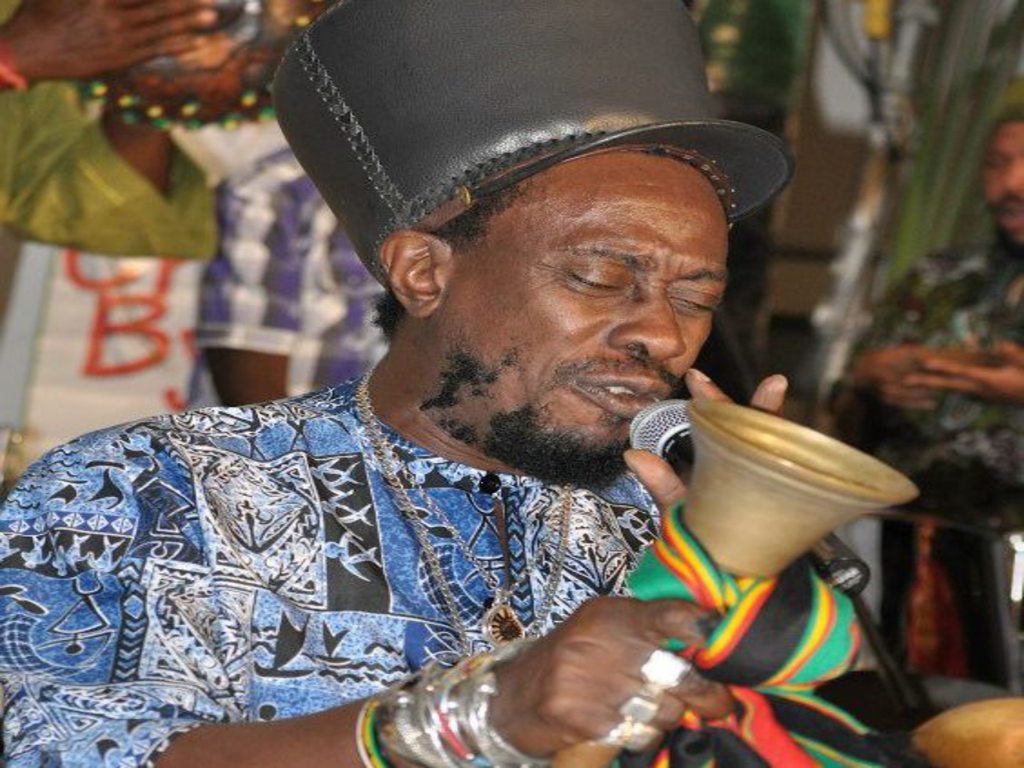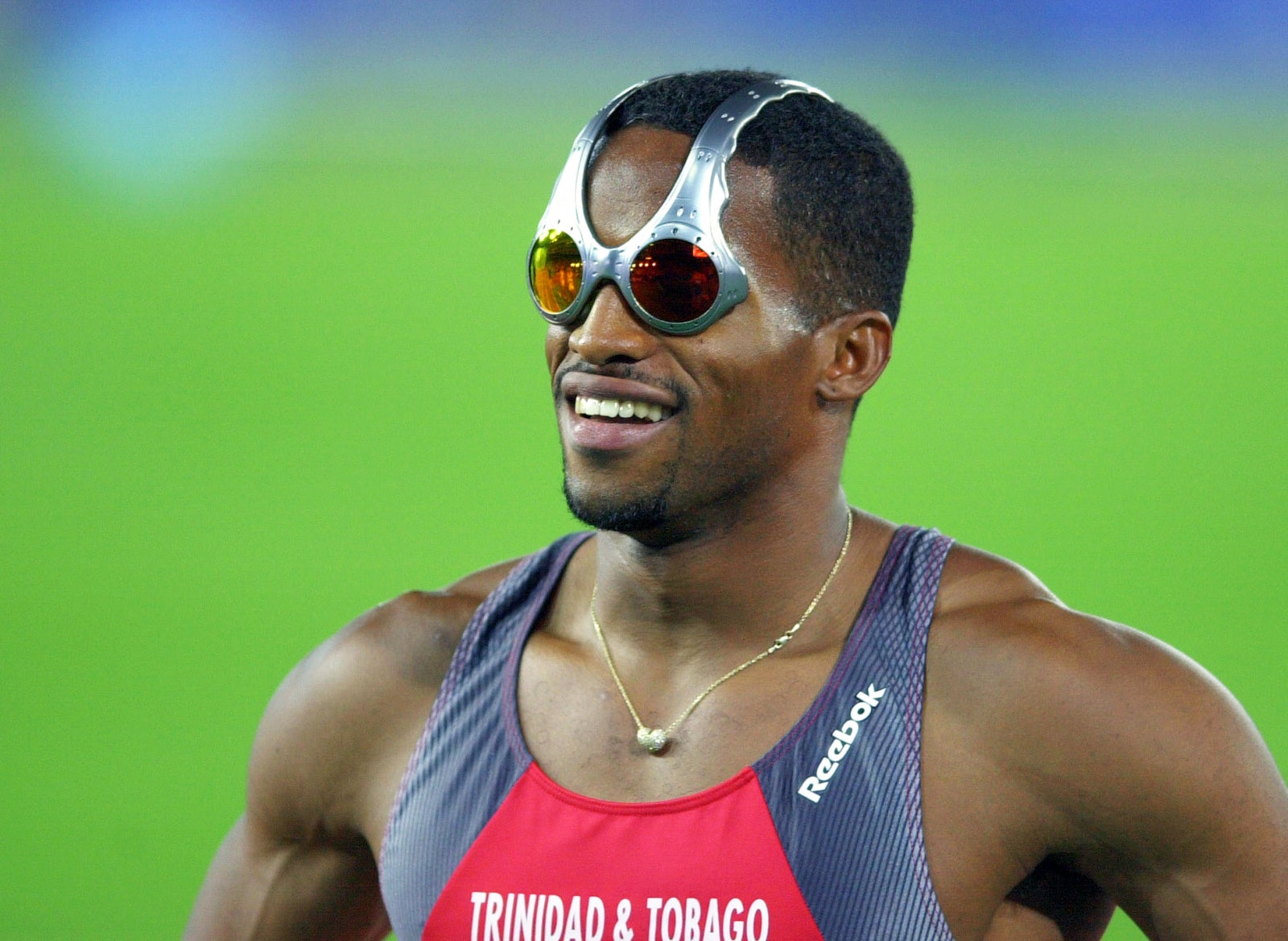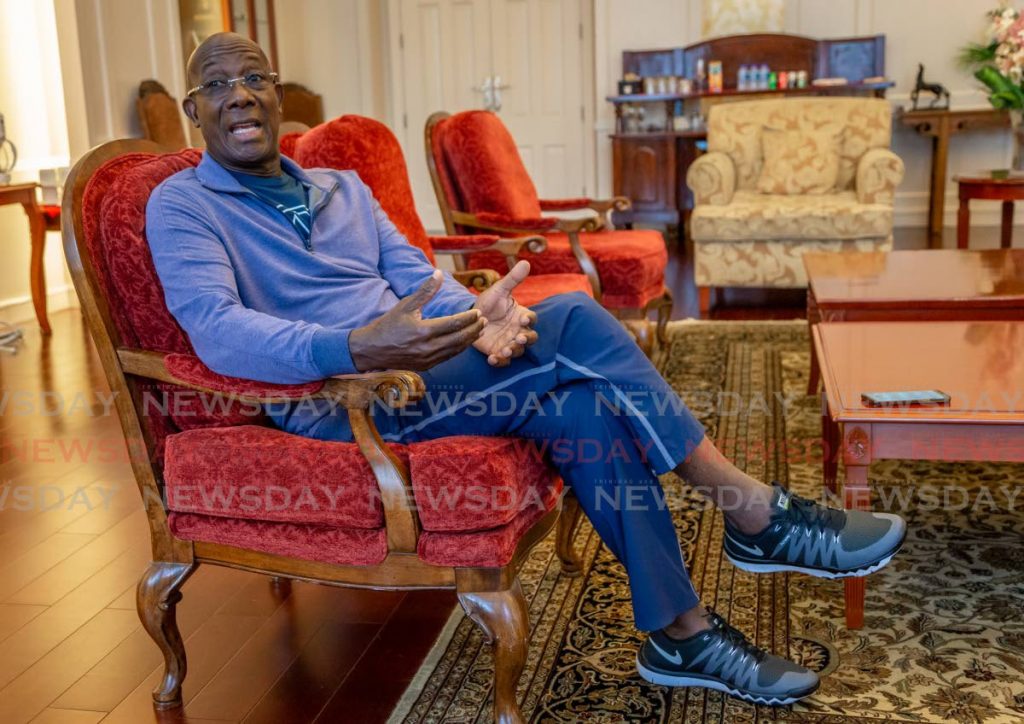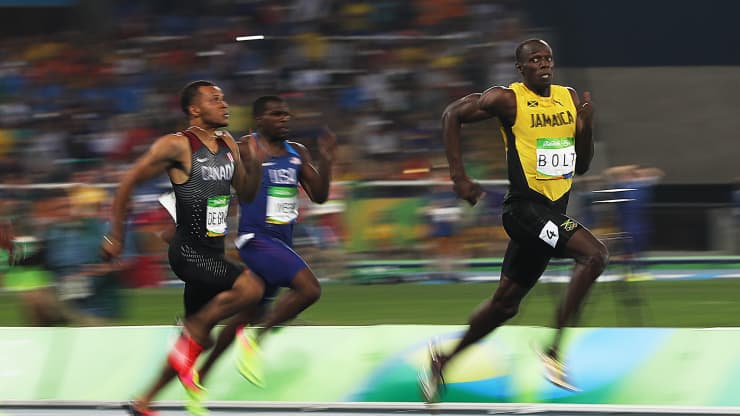Sporting community loses another as...
Embracing, encouraging, welcoming: Brother Resistance remembered
The power of the word in the rhythm of the word.
President mourns rapso pioneer Lutalo Masimba
President Paula-Mae Weekes has paid tribute to rapso pioneer Lutalo "Brother Resistance" Masimba.
Why Is the Fashion World Still Obsessed With This Olympian’s Sunglasses?
Last week, Johnny Valencia of Pechuga Vintage posted a photo of Trinidadian Olympian Ato Boldon from the 2000 Olympics in Sydney, Australia. Boldon, who ended up winning the silver medal for the Men’s 100 meter race, was wearing a standard running leotard with a pair of silver, reflective sunglasses that went not over his ears, but over his head. Fittingly called “OVERTHETOP,” the Oakley pair morphed Boldon into a speedy dystopian character out of Mad Max.
PM: TT would have been in trouble if not for Sinopharm
Prime Minister Dr Keith Rowley said on Thursday the country would have been in trouble if it had not received the Sinopharm vaccines from China.
How the world’s fastest man Usain Bolt mentally prepares for a race
Jamaican sprinter Usain Bolt is still known as the fastest man alive.





